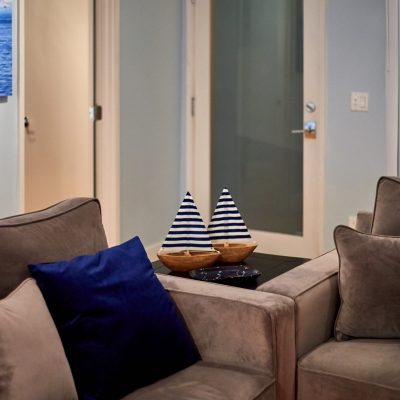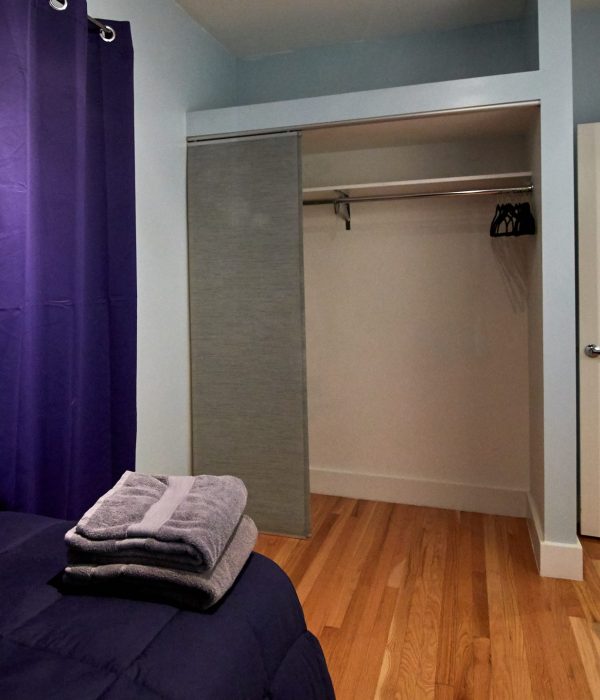Cognitive Behavioral Therapy (CBT)
Cognitive Behavioral Therapy (CBT)
During the journey of substance abuse recovery or treatment for addiction, it can be easy to fall into a spiral of depression, anxiety, shame, remorse, or despair. Recovering individuals may even believe that they are broken or incapable of change, resigned to a lifetime ruled by the vicious cycle of addiction. Cognitive Behavioral Therapy works to identify and overcome these cognitive distortions, while using the process of cognitive restructuring to change negative thoughts into positive thoughts that inspire rational and productive behaviors.
CBT views dependency as a learned behavior, which can result from prior experiential factors, environmental challenges, or internalized trauma. These unhealthy behaviors, attitudes, and actions can be effectively changed through the right methodologies and coping techniques, including identification and avoidance of stimuli, contingency management strategies, and response desensitization.
Our licensed CBT therapists will help patients face painful memories and cognitive distortions from an objective viewpoint, with the goal of helping them move beyond the self-limiting beliefs that have led to addiction, substance abuse, or alcoholism. Throughout the duration of treatment, recovering individuals will learn to replace addictive tendencies, negative feelings, and harmful thoughts, with positive behaviors rooted in the evidence-based scientific methods of CBT.
As individuals become aware of their damaging behavioral patterns and distorted mental perceptions, they will also develop powerful coping strategies to facilitate long-term change.
What to expect in a Cognitive Behavioral Therapy group:
- An encouraging and interactive small group setting led by a qualified CBT therapist
- A structured environment to examine the way your thoughts, behaviors, and feelings directly impact maladaptive or impulsive behaviors
- Development of coping techniques designed for short-term efficacy
- Development of immediate problem-solving strategies that serve as a powerful foundation to building long-term strategies that prevent relapse
- Learning and development of contingency management strategies
- Development of social networks and community support resources
- An individualized goal-oriented approach that allows each participant to focus on their own personal, social, emotional, and professional treatment objectives

DBT (Dialectical Behavior Therapy)
Dialectical Behavior Therapy is a very specific and highly effective form of psychotherapy, which is particularly successful in treating substance abuse when the patient has also been diagnosed with co-occurring mental health conditions or personality disorders.
DBT views addiction as a symptom of emotional dysregulation disorder, and during the course of treatment, patients will learn to find a healthy balance between the logical and emotional mind. Due to the unpredictability that exists alongside intense emotional dysregulation, individuals may turn to substance abuse to cope with these impulsive or uncontrolled reactions.
Our team of Los Angeles DBT therapists maintain a targeted, outcome-driven treatment approach that helps patients reduce dependency on maladaptive behaviors, while also utilizing strategies centered on community reinforcement for social support. Our DBT therapists also serve as a constant source of support to talk through difficult times that arise outside of designated session times.
Dialectical Behavior Therapy is an extremely useful modality within an outpatient treatment setting, as it focuses on teaching robust coping skills and strategies that can quickly be mastered and put into daily practice outside of the program.

During DBT sessions, individuals will receive targeted therapeutic guidance in the following areas:
- Development of coping skills to handle intense emotions and achieve a more productive stress response
- Strategies for gaining an improved self-image, enhanced mindfulness, and increased self-awareness
- Development of greater interpersonal communication skills
- Learning to set healthy boundaries that are both firm and respectful
- Identifying unhealthy behaviors and environmental triggers that contribute to drug use or substance abuse, and working to avoid them in daily life
- Coping tools to increase levels of distress tolerance during periods of stress or anxiety
Individual Therapy
Many individuals prefer one-on-one sessions with their therapist, and at HRC, patients are purposefully matched with compatible clinicians who support their long-term goals, while also promoting recovery in a safe, confidential, and nonjudgmental environment.
Individual therapy is designed to allow personal growth and development, and is centered on individualized outcomes, goals, and treatment objectives. Our highly skilled and licensed clinicians have a variety of specializations, and are trained to utilize a combination of modalities, such as EMDR and trauma-informed treatment, as part of a holistic individualized treatment plan.
Family roles, perceptions, and attitudes play an essential part in successful addiction recovery, and our individual therapy outpatient program integrates a strong Family of Origin component. Patients will learn to better understand the dynamics of families affected by addiction, while integrating strength-based solutions to overcome barriers that hinder successful recovery.
During individual therapy, every patient holds the power to be their own advocate throughout the duration of the program. Individuals will work directly with their therapist to create not only a results-oriented treatment plan, but also a dedicated aftercare plan that carves a sustained path toward sober living.


Group Therapy
The safe and supportive space of group therapy is ideal for recovering individuals who desire to develop interpersonal communication skills, form new social connections, and find new ways to challenge their addictive behaviors, while also learning from others who are facing similar battles. When patients engage in this evidence-based treatment modality, they will receive support and encouragement within a small group setting, as their fellow group participants share in celebrating the successes and milestones of overcoming addiction together.
HRC focuses on a group psychotherapy curriculum that incorporates a variety of best practices and evidence-based methodologies, including:
- Process
- Psychoeducational
- Experiential
- Treatment Planning
- Addiction Medicine
- Independent Living Skills
Couples Therapy
Addiction creates a turbulent whirlwind that can cause lasting damage to even the strongest relationships, often leading to friction, resentment, and hostility, as couples face unprecedented challenges that represent the consequences of substance abuse.
Amid the struggles of addiction, it can be easy for couples to lose their way, letting discord and strife replace the love that was once shared. Every relationship has its ups and downs, but when amplified by the consequences of mental health issues or substance abuse, even the smallest problems can snowball into insurmountable challenges.
The HRC professional relationship therapists specialize in couples counseling, with the ability to assess relationship issues from an objective viewpoint, while identifying the underlying patterns that may be contributing to distress. Couples will learn to navigate challenges and resolve conflicts with constructive solutions that include emotions, feelings, and productive problem-solving, without assigning blame, shame, or judgment.
Returning to a place of trust, love, and commitment takes dedication and perseverance, and it is often a highly emotional process. With individualized couples counseling, couples can learn to build trust once again, communicate with love and tolerance, and share unconditional support and accountability.

Below are the most common issues addressed in couples counseling:
- Money and financial insecurity
- Parenting issues
- Fear of defensiveness or attack when expressing one’s needs
- Infidelity
- Sexual and emotional intimacy issues
- Dishonesty
- Restoring broken trust
- Religious or cultural conflicts
- Recurring arguments
- Interference from parents and in-laws
For better or worse, the road to recovery from addiction is a shared journey between couples, partners, and spouses. In order for couples counseling to be successful, both sides must be receptive to guidance from their therapist, must demonstrate a willingness to change, and must maintain patience and flexibility. If couples are unable or unwilling to reconcile their differences, their therapist can provide them with guidance in making important decisions about the future of the relationship.
In relationships that have endured years of contention and conflict, results will not happen overnight. However, with an intense commitment from both individuals over time, a renewed sense of trust and intimacy can be restored.

Family Therapy
Honesty, transparency, and open communication are at the heart of our evidence-based family therapy program. Our professional family therapists work with recovering individuals, their families, and their children to introduce and implement a powerful treatment approach that allows the healing process to take root, while affecting positive change in family dynamics.
This family-centric therapy program gives a voice to all family members that have been directly or indirectly affected by the patient’s mental health issues, drug addiction, or substance abuse. In this open and honest family therapy format, family members will help to shine a light on deep-seated beliefs that have fueled the addict’s dependency, as well as patterns of behavior that may present a barrier to recovery if not addressed.
The patient must be prepared to face uncomfortable truths without reverting to defensive behavior, with the knowledge that everything shared is out of love and genuine concern for their health and well-being. As family members reveal honest insights without fear of retribution, long-held communication barriers can finally be shattered, and meaningful family connections can be strengthened and reinforced.
HRC offers face-to-face family therapy, as well as telehealth family therapy sessions, so that families can choose the preferred method to meet their needs and expectations.
